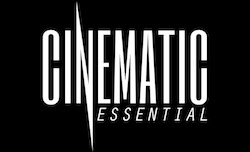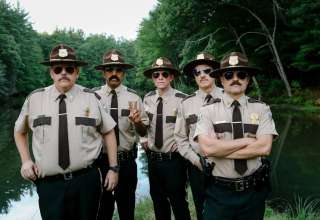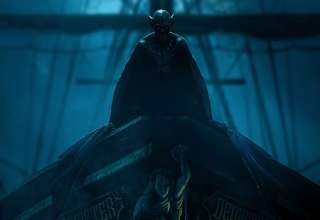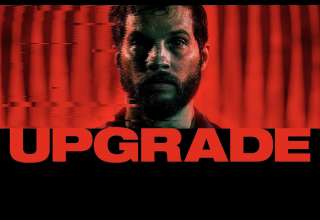David Gordon Green has the kind of résumé that would make the average person scratch is head. You can’t figure out what he wants as far as his reputation in film, but that may be why he was such a good fit for the director job of Stronger. Like Jake Gyllenhaal, he’s the kind of artist who you can’t put into one specific category. During my interview with him, I asked about that as I attempted to understand what makes him the kind of guy he is.
Cinematic Essential: How much did you know about the story?
David Gordon Green: I wasn’t familiar with the story at all. I remember the photograph. The opening script was a whole world I had no familiarity with. It got me thinking about how often we read headlines and how rarely we follow-up with those headlines. And I think one of the things that drew me to this particular project is that it isn’t about the immediate event as much as it is about the aftershocks. And weekly, daily, we see these headlines from man-made, natural disasters, frustrations, hardships and struggles that we all go through and it’s easy for when we we’re not involved to move on to the next one. But think about anything that’s happened in our lifetimes. There are echos that change people’s lives in an instant. In my effort, from this perspective was to make a portrait of Jeff Bauman and his community that was relatable and universal to anyone, anywhere that greets challenges, has hardships, has hopes and needs a little healing.
And did you find that to be difficult in any way?
It was ethically complex to know that I was going to make a movie that was approximately two hours, that was gonna have characters of a manageable number that needed arcs and story telling devices and Hollywood technicalities to encourage someone to buy a ticket. And yet, the most important consideration was making something that was respectful of my very vulnerable and wonderful subjects. It’s the first film that I ever deeply considered an audience and the subject matter equally and I took the back seat myself as a film director trying to choreograph something I thought dug deep into the harsh reality of this story that could provide something that was something people would want to see and encourage others to see.
Plus, you made it light at least in certain instances. That helps balance things out.
If you make something devastating and oppressive, nobody’s gonna want to go, no lessons learned, the frustrations are still frustrations. But if you can structure it correctly and execute it respectfully in a way that you can make the story appealing and relatable. When you also hear “Based on a true story. Inspiring tale,” your warning lights go off. It was interesting getting to know the subjects. I think it helped that rather than “Hollywood director” and it’s “Texas director” who worked on Eastbound and Down. My resume immediately takes the piss out of me, so I don’t show up on a pedestal with my beret and megaphone. And I think that’s helpful in terms getting trust and relatability to subjects that I want to trust me and let me into their lives.
What about introducing family issues? Was there any apprehension from the people involved?
It’s not necessarily a flattering portrait of everybody, but we’re all imperfect. I think we open up a conversation. It’s been a difficult journey and if we don’t show the difficulties head on, then what are we really trying to do? I don’t want to gloss over anything. Everybody has a difficult journey. One character loses his legs but every character has their own substantial obstacle that they’re facing. And who’s to say that one’s a more grand journey than the other.
So authenticity and support from the family were extremely important factors?
That’s the other thing that was very valuable about the support of the family through this undertaking. We were able to call on Dr. Kalish, the surgeon who performed the amputation. The scene where Jeff’s mom and dad are talking to the surgeon, that’s Dr. Kalish who had the conversation with Patty and Big Jeff (Bauman). When he (Jeff) is getting his sutures cleaned, that’s Dr. Kalish. When he’s getting his tubes pulled out, that’s Odessa, the nurse that took care of him in the hospital. We didn’t script them. We just said “Do what you do. Say what you say.” His physical therapist is in the movie. The Martino brothers at United Prosthetics who are taking the molds for his legs are guys who’ve been making legs for generations here in Boston. If you have that level of authenticity and support, it makes everything feel that much more correct for a filmmaker who’s walking into something that’s so sensitive.
Specific reason for such a diverse resume?
I like that. I like that I’m open. Yeah, you know it’s a blend of ambition and opportunity. I take five days of vacation a year. I go up to Lake Winnipesaukee. I’ve done that for fifteen years. I work real hard and love going to movies, listening to story tellers and working with actors and artists and technicians and the collaborative effort in general. Otherwise, I’d be a poet or a painter or something more independent. But I just love getting up in the morning and thinking about where to turn a camera and how to create something. Some days that’s wanting to do something light and fun. Early in my career, I did four independent dramatic films and I got tired of living in that world and wanted to do some light and fun and ended up doing Pineapple Express. Since then, I’ve just felt great freedom in not repeating myself. And I was talking to this guy who said that I never made a sequel and I would have to at some point. I think the irony of doing that would be interesting.
From a personal perspective, what did you take from the entire experience?
You can do anything. One of the things I love about Jeff is that he’s normal guy. He just a dude who likes to watch baseball, drinks beer with his buds and has a normal job. I always feel like, even in my own profession, you meet these directors and you’re like, “That guy’s a director!” And to me I’m just like “I gotta go mow my lawn.” I don’t feel like I have that kind of thing, so it’s nice when you meet extraordinary normal guys. So when I met Jeff, he didn’t have any superpower. He’s not coming with any greater box of tools. He has a vulnerable family who’s loving and supportive just like anybody else. And the fact that he could be greeted with such a bizarre and baffling situation that changes his life and comes through it is just reassuring that if I get hit with the “next one,” Jeff’s the first phone call I’m gonna make. So, it’s reassuring to see someone who you feel is reflective of your modest presence in this world.






















